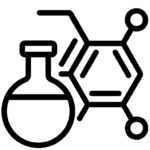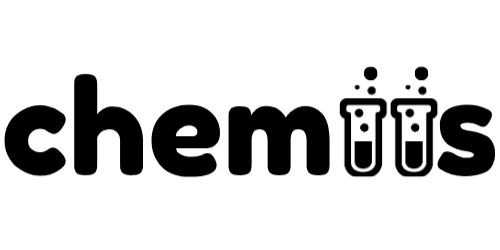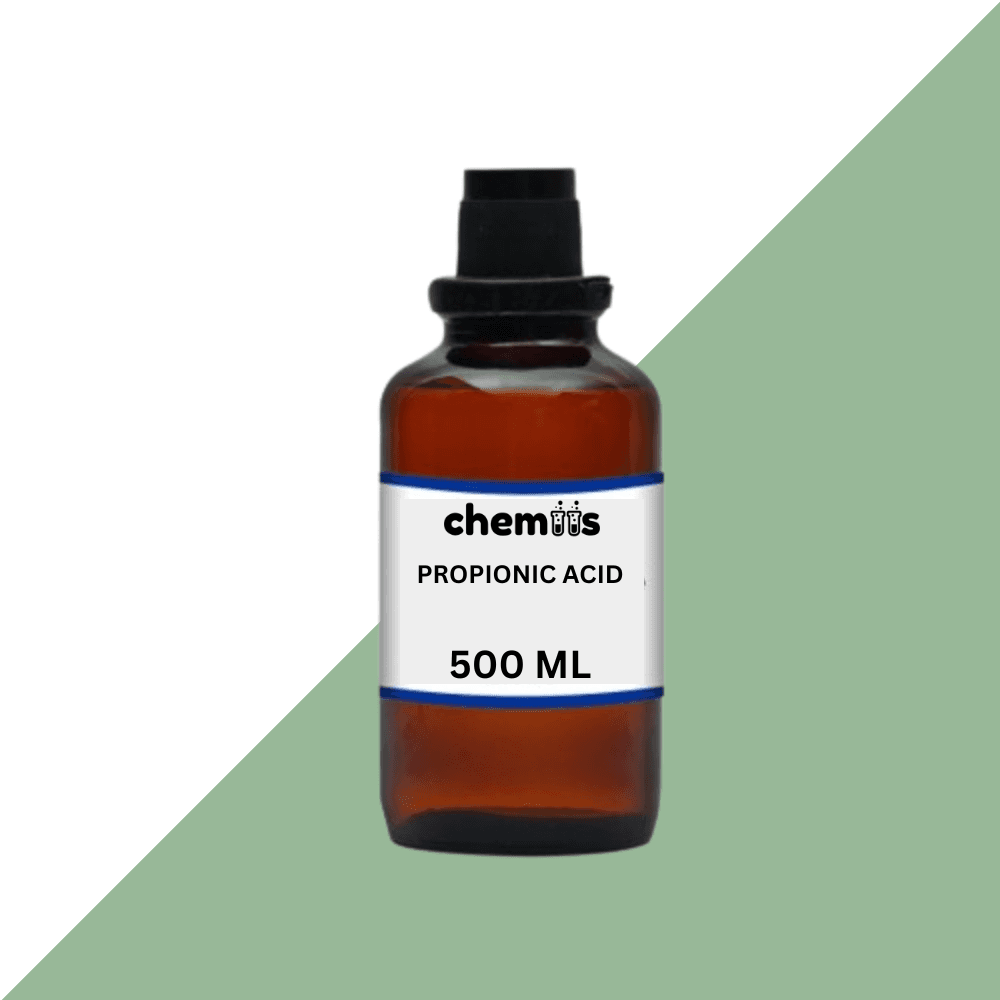Propionic acid (CH₃CH₂COOH) is a naturally occurring short-chain carboxylic acid. It is colorless, oily, and has a pungent odor. This organic compound is commonly used as a preservative, antimicrobial agent, and a chemical intermediate in various industries. Propionic acid is important for its ability to prevent spoilage and contamination, particularly in the food, agriculture, and chemical sectors. It is also utilized in the production of plastics, herbicides, and other chemicals.
Applications
- Food Industry
- Preservative:
Propionic acid is widely used as a preservative in baked goods, cheeses, and processed meats to inhibit mold growth and extend shelf life. It prevents spoilage by inhibiting the growth of fungi and bacteria. - Food Additive (E280):
It is approved by food safety authorities and used as a safe food additive to preserve various food products.
- Preservative:
- Agriculture
- Animal Feed Additive:
Propionic acid is used as a preservative in animal feed to prevent mold and spoilage, especially in silage, ensuring a longer shelf life and better nutritional value for livestock. - Herbicide and Fungicide:
It is sometimes used in agricultural applications as a herbicide or fungicide, helping control unwanted plants and fungi.
- Animal Feed Additive:
- Chemical Manufacturing
- Production of Propionates:
Propionic acid serves as a key starting material for the production of propionates, which are used in the manufacture of esters for flavors, fragrances, and pharmaceuticals. - Plasticizers and Polymers:
It is involved in the production of plasticizers and as a component in the synthesis of certain polymers like propionate esters, which are used in coatings and adhesives.
- Production of Propionates:
- Pharmaceuticals
- Intermediate in Drug Synthesis:
Propionic acid is an essential building block in the synthesis of various pharmaceutical compounds, including anti-inflammatory drugs and antibiotics. - Antimicrobial Agent:
Used in some medical formulations due to its ability to prevent microbial contamination and preserve the efficacy of the product.
- Intermediate in Drug Synthesis:
- Cosmetics and Personal Care
- Preservative in Cosmetics:
Propionic acid is used in cosmetics, lotions, and shampoos to prevent microbial growth and extend the shelf life of these products. - pH Adjuster:
It is also employed as a pH adjuster in personal care formulations.
- Preservative in Cosmetics:
- Leather Industry
- Tanning Agent:
Propionic acid is sometimes used in the leather industry to assist in tanning processes, ensuring that leather products are durable and resistant to bacteria.
- Tanning Agent:
- Textile Industry
- Dyeing and Finishing:
Propionic acid is used in textile treatments as a dyeing auxiliary and for the finishing of fabrics, improving texture and durability.
- Dyeing and Finishing:
Safety and Handling
- Hazards:
- Propionic acid is a corrosive substance that can cause severe irritation to the skin, eyes, and respiratory system.
- It is flammable and poses a fire risk, especially when heated to high temperatures.
- Precautions:
- Personal Protective Equipment (PPE): Wear appropriate gloves, safety goggles, and protective clothing when handling propionic acid. Use a respirator in poorly ventilated areas to avoid inhaling vapors.
- Ventilation: Work in well-ventilated areas, especially when using propionic acid in large quantities or in confined spaces.
- Storage: Store in a cool, dry place, away from sources of heat or open flames. Ensure containers are tightly closed to avoid vapor release.
- First Aid:
- Eye Contact: Immediately flush eyes with water for at least 15 minutes. Seek medical attention if irritation persists.
- Skin Contact: Wash skin with soap and water. If irritation occurs, seek medical advice.
- Inhalation: Move the affected person to fresh air immediately. If symptoms like coughing or breathing difficulties persist, seek medical attention.
- Ingestion: If swallowed, rinse the mouth with water and seek immediate medical help. Do not induce vomiting unless instructed by a medical professional.


















Reviews
Clear filtersThere are no reviews yet.